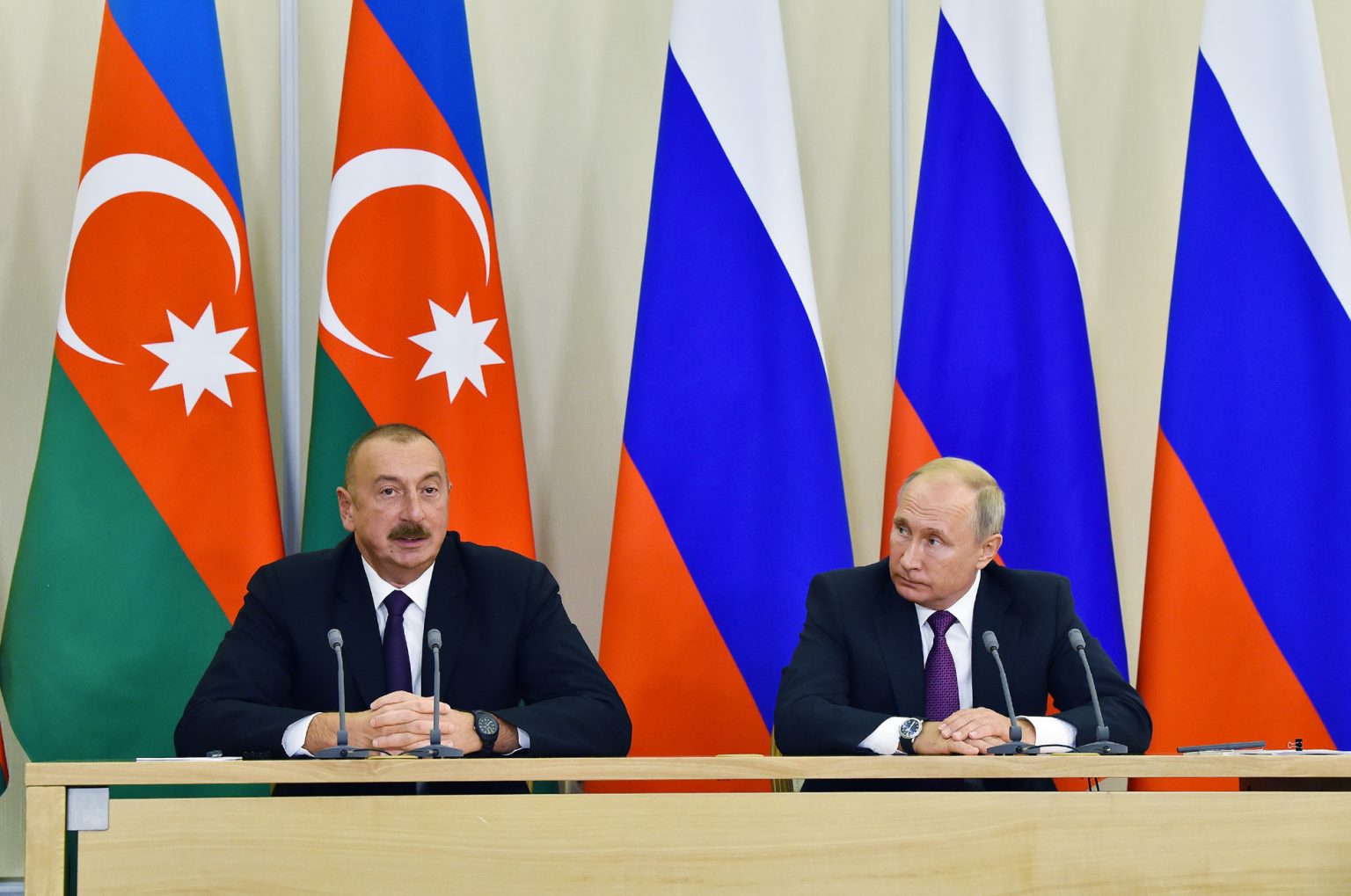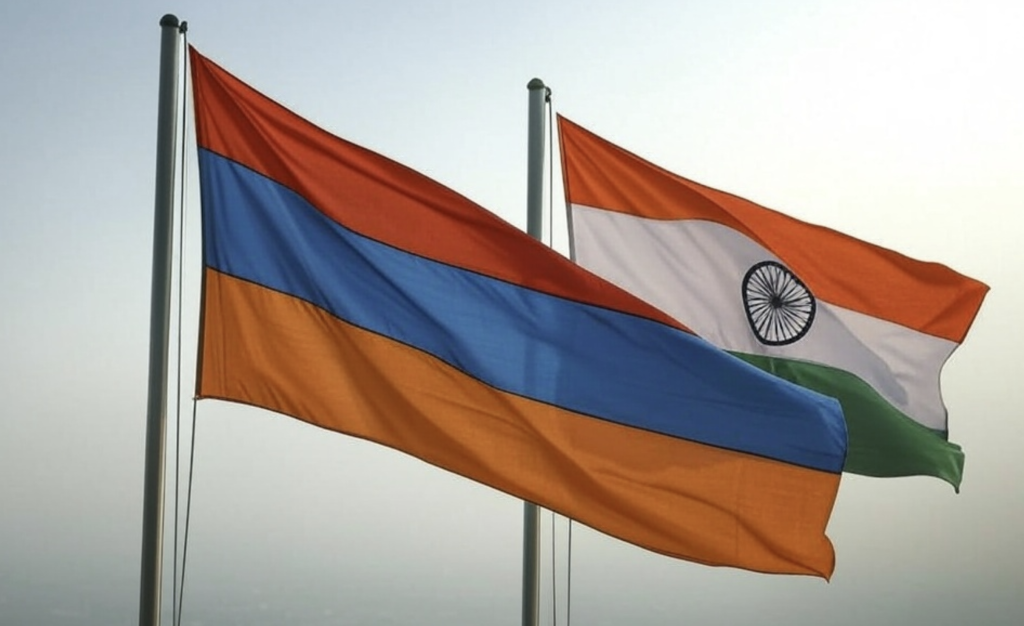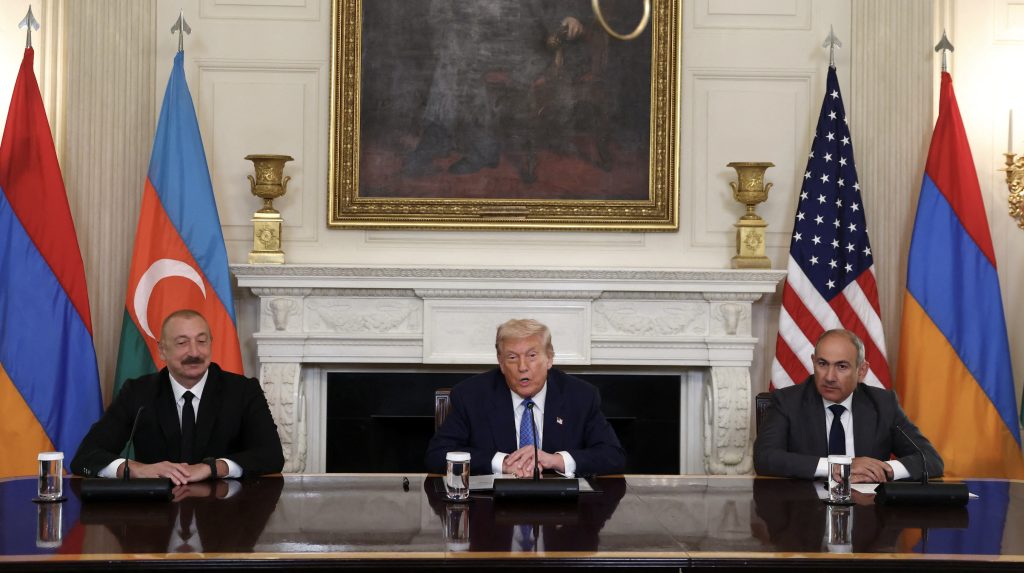A few months after reaching their peak in August 2024, Russian-Azerbaijani relations took a nosedive with the downing of an Azerbaijani plane by Russia in December 2024. But rather than being the originating source of the discord, the “aircraft crisis” has served as the pretext for deteriorating relations. The frosting of relations allowed Baku to resolve key issues in the region and keep Moscow at a distance from the processes. This was the result of a strategic mistake by Russia, which, after accepting the post-2023 status quo, assumed that Azerbaijan would become Russia’s new main partner in the South Caucasus. An important indicator of the ongoing mistrust and confrontation is the arrest in October 2025 of Ramiz Mehdiyev, former head of the Azerbaijani presidential administration, accused of preparing a pro-Russian coup. If some degree of political détente began after the Washington Summit in August, it is not likely to last because the disagreements between the countries are deep-rooted, and the geopolitical balance cannot be rolled back in line with Russians’ wishes.
2022–2024: The rise of Russian-Azerbaijani friendship
Relations between Russia and Azerbaijan were on a high from 2022 to 2024. The signing of the Declaration on Allied Interaction in February 2022 strengthened the ties between the countries. Moscow saw it as a great diplomatic success with a new ally emerging in the South Caucasus, in addition to Collective Security Treaty Organization (CSTO) and Eurasian Economic Union (EAEU) member Armenia. In addition, Moscow viewed this Declaration as balancing Turkey’s position in the context of strengthening the alliance between Baku and Ankara after the Shusha Declaration of June 2021. Azerbaijan’s President Ilham Aliyev understood then that he needed to upgrade relations with Russian President Vladimir Putin to achieve Azerbaijan’s regional ultimate objectives of controlling Nagorno-Karabakh without Russian peacekeepers and opening the so-called “Zangezur corridor” more assertively. In this sense, the most important point in the Declaration for Baku was Russia’s confirmation of its recognition of Azerbaijan’s territorial integrity.
The two-day state visit of President Putin to Azerbaijan in August 2024 was the peak of good relations between the neighbors. The state visit took place four months after Baku had seen Russian peacekeepers withdraw from Nagorno-Karabakh. The agreements signed then, the declared intention of Baku to draw closer to the Shanghai Cooperation Organization and the BRICS intergovernmental organization, as well as informal discussions between Putin and Aliyev at the latter’s residence, were all indicators of reinforced ties between Russia and Azerbaijan. Additionally, Moscow and Baku announced that 2022 Declaration had been implemented in practice.
During the same visit in 2024, the Russian Foreign Minister Sergey Lavrov, to Azerbaijan’s delight, stated that “Armenia is sabotaging the opening of transport communications.” Obviously, Moscow and Baku sought to impose the implementation of Article 9 of the trilateral statement of November 2020 (calling for all economic and transport communications in the region to be unblocked), while they both violated or failed to fulfill the remainder of the trilateral statement. However, this did not work out, due to multiple dynamics, including Armenia’s unwillingness to implement article 9, Iran’s tough reaction to Lavrov’s statement and later to the Washington Declaration of August 2025 laying out plans for the Trump Route for International Peace and Prosperity (TRIPP).
Given the closeness between Putin and Aliyev and their experience of solving potential flare-ups between them (indeed, the downing of a Russian military helicopter over Armenia by Azerbaijan in November 2020 and the killing of Russian peacekeepers in Nagorno-Karabakh in September 2023 were both resolved swiftly), the airplane crash in December 2024 could have been resolved in the same vein. It could therefore be argued that the downing of the Azerbaijani aircraft was not the real cause but a pretext for relations to deteriorate. The causes may lie elsewhere.
Possible causes of the crisis: A weakened Russia and uncomfortable interdependencies
In Azerbaijan’s case, there were a number of possible reasons for the crisis with Russia. First, Baku has sought to play in a “higher league” as a middle power. Such an endeavor presupposes, among other things, challenging more powerful actors. One of these was France, and Azerbaijan launched a “decolonization” campaign aimed at creating problems for Paris. A similar attempt became possible against Moscow, as Russia, bogged down in Ukraine, proved unable to project influence in the larger post-Soviet space. The authorities in Azerbaijan likely saw an opportunity to establish relations with Russia on a more equal footing rather than skewed in Russia’s favor.
A second possible motivation for Azerbaijan to escalate tensions with Russia lies in Baku’s deliberate attempt to distance Russia from the South Caucasus. Given Russia’s complicated relationship with Armenia, its growing friction with Azerbaijan, and its focus on the war in Ukraine, its capacity to influence regional dynamics has become increasingly constrained. This shift creates an opportunity for Baku to change the regional status quo as it did in 2023 with the fallout of Nagorno-Karabakh. To achieve its new goal—opening the “corridor” to Nakhijevan through Armenia—Baku did not get Yerevan to agree through Moscow’s blame during the August 2024 visit. Therefore Baku saw the need to engage new external players to distance Moscow from the equation.
Importantly for Moscow, Baku has not joined the Western sanctions policy following the war in Ukraine. Azerbaijan’s holding back from the West’s sanctions may well explain why Baku was included in the strategic economic projects announced by Russia and Iran. For Russia, the deterioration of relations with “one of the key allies in the region” would jeopardize the implementation of such strategic initiatives, including the International North–South Transport Corridor. Subsequent statements by Moscow that “certain forces want to cause a rift in relations with Baku” indicate a desire to shift responsibility for the root causes of the crisis from Russia and Azerbaijan to external players, to make it easier to save face and restore relations to where they were. For instance, during his meeting with Aliyev in October 2025, Putin blamed Ukrainian drones for the disaster. Azerbaijan played that part, too, “balancing” the restriction of the activities of the Sputnik news agency in Russia by restricting the UK’s BBC News Azerbaijan.
The willingness to undermine relations came from Baku rather than Moscow. Moscow has not resorted to serious restrictive measures even when Azerbaijan touched two painful points—Aliyev called on Ukraine to “never to come to terms with occupation” and told the Ukrainian Armed Forces to “continue to act,” while the Azerbaijani state news agency compared present-day Russia to Nazi Germany.
Before publicly acknowledging its mistake in October 2025, Russia tried to blur the situation around the downing of AZAL Flight 8243 of December 2024 in every possible way so that the matter would not affect its relations with Azerbaijan. Yet at the same time Moscow refused Baku’s demands—public apologies and public punishment of those involved. After this “soft approach,” Russia adopted a more forceful approach to restoring relations with Azerbaijan. The detention of representatives of the Azerbaijani diaspora in Russia, where two people died, may be explained as a way of forcing Azerbaijan’s hand to restore relations with Russia. However, this had the opposite effect and deepened the crisis.
Reality check: Real outcomes of crisis
During the last months, Russia’s influence in Azerbaijan and Azerbaijan’s standing in Russia significantly declined. The detention of Azerbaijani criminal groups’ leaders and businessmen and the removal of pro-Azerbaijani propagandists from their positions undermine Baku’s lobbying capabilities in Moscow. Previously, representatives of the Azerbaijani diaspora succeeded in lobbying for Baku’s interests largely due to their perceived loyalty to Moscow. However, their silence in the crisis signals a lack of loyalty, which in turn narrows their room for maneuver and significantly limits their ability to influence Russian policy in favor of Azerbaijan.
Despite the fact that economic relations between the two countries have not been significantly affected by the political crisis, some damage to Baku’s assets occurred. Russia twice attacked Azerbaijan’s Socar energy infrastructure in Ukraine in August 2025. In terms of the economy, Russia has started to restrict imports of vegetables, fruits, and milk products from Azerbaijan. Most likely, this confrontation will continue to decline following the meeting between Putin and Aliyev in October 2025.
Russia’s soft power instruments, Sputnik Azerbaijan and the “Rossotrudnichestvo” (Russian House) office in Baku, are effectively closed. Even in the case of complete political normalization, it is not certain that these organizations will resume their activities as Baku seeks to minimize international external presence in the country and reduce Moscow’s leverage within Azerbaijan. However, Aliyev may play this card to restore his lobbying infrastructure in Russia.
Importantly, the main changes during the crisis did not occur on the bilateral track, but regionally. The Washington Summit solidified the role of the United States—not Russia or another power—as the main facilitator. As a result of the Declaration brokered by the US, Baku got what it could not get with Russia’s involvement: the agreement of Armenia on a road with unimpeded access to its exclave, Nakhijevan, although the new TRIPP will remain under Armenian sovereignty and jurisdiction.
Since the regional configuration changed with the involvement of the US, Azerbaijan has taken the path of renormalizing relations with Russia. A number of positive signals, such as Azerbaijan’s participation in the meeting of the Intergovernmental Commission on Economic Cooperation in Astrakhan at the end of August, the Azerbaijani government’s approval of the Federal Security Service (FSB) border patrol ship Rasul Gamzatov entering the port of Baku in September, and the meeting of Caspian Sea naval commanders in St. Petersburg in October, led to significant breaking of the ice during the meeting of the Council of Heads of State of the Commonwealth of Independent States (CIS) in Tajikistan in October.
Russia’s strategic importance to Azerbaijan declined sharply after Baku “resolved” the Nagorno-Karabakh issue and got consent through the US to open the road to Nakhijevan. Azerbaijan came out on top after the crisis. Aliyev noted that there had been “no rollback” in bilateral relations, meaning that no fundamental changes had taken place. However, at the regional level, Baku pushed Moscow out of the process, while after the withdrawal of the peacekeepers Russia believed that it had gained a reliable new ally in the South Caucasus. In other words, Baku was able to turn the situation to its favor without any serious negative consequences. At the same time, Baku’s importance for Moscow has remained the same in terms of сonnectivity, development of the shadow fleet, and re-export of Russian energy resources.
What’s next?
Azerbaijan’s growing attractiveness in the US and the European Union is likely to be a temporary effect. Baku has undermined its relations with Russia not in order to move closer to the West, but to solve its own problems with the help of the US and the EU. In the event of significant changes, such as the end of the war in Ukraine and Russia’s desire to grow its influence back in the South Caucasus, Baku will prefer to mitigate risks and cooperate more closely with its northern partner.
However, Russia made a strategic mistake by assuming it had gained a dependable new ally in the region and shaped its relationship with Armenia based on increasing dialogue with Azerbaijan. It is still too early to record a full political normalization. A fundamental problem in Azerbaijan’s relationship with Russia persists and was openly revealed by Aliyev, such as anti-colonial sentiment against Russia, which is already documented in Azerbaijan’s Constitutional Act (which calls out Russia’s annexation of Azerbaijan and the plundering of its resources). The arrest in October 2025 of Ramiz Mehdiyev, former head of the Azerbaijani presidential administration is an important indicator of the ongoing mistrust and confrontation. Aliyev took this step immediately after meeting with Putin.
Armenia could have used the window of opportunity of Azerbaijan’s deteriorating relations with Russia to improve its relations with Moscow. After all, Baku actively exploited the political tensions between Russia and Armenia, trying to present itself as a reliable ally of Moscow. As the crisis between Russia and Azerbaijan continues in various forms, Yerevan could look at capitalizing on this opportunity.




